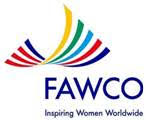The AWG copy of this book (copyright 2015) has the subtitle The Secret to Love That Lasts but another copy (copyright 2004), with the subtitle How to Express Heartfelt Commitment to Your Mate circulated among members. There is no way of knowing whether the texts are the same without reading both copies. (I’d be happy to hear from volunteers.) Six members were present to discuss this book, but two had not yet read it. Barbara had suggested it at the Planning Meeting last September, but was not available to present it. (The date had been “imposed” since February 14th seemed appropriate.) February 14th is not just Valentine’s Day. It is also the date for One Billion Rising, and the meeting started with a short explanation of the movement. One Billion Rising is the biggest mass action to end violence against women in human history. The campaign, which launched on Valentine’s Day 2012, began as a call to action based on the staggering statistic that 1 in 3 women on the planet will be beaten or raped during her lifetime. (Details can be found on the internet.) Participants at the meeting had also responded to the request to wear something pink for a photo-op, and the photo was posted on the FAWCO FB page after the meeting. Although Barbara could not attend the meeting, she sent a message explaining why she had recommended the book, and the text was read aloud: Last year, the book club was discussing another book (fiction) -- I don't remember what it was -- and I mentioned this book and the gist. The other book club members seemed interested and I think someone asked if I still had it. (In fact, I had got it for my daughter but perused it first). Although we are all through the stage of fine-tuning our marriages, I thought it a good topic of discussion, as the principle that one must figure out where the other person "is coming from" applies not only to our significant others, but also to other loved ones. For example, my daughter has identified not only her own and her husband's, but also her children's love languages. (We joke about it). I found the book interesting but also enjoyable in that I like to categorize ideas, people and concepts. And I often find myself reflecting upon the variety of categories of Love Languages presented in the book and wished to share those reflections with the book club readers. If there's one bit that I found a bit hard to digest, it was the author's advice to one of his clients to tolerate the intolerable, ie. to run on an empty gas tank. I feel that although love has to be flexible and bilateral, there's only so much cheek-turning that some relationships can bear. However, this was the one extreme case, and the others were quite palatable and, in my mind, enlightening. So sorry I won't be able to present. I'm curious to know if our members were able to identify their own love language. I have! Two other members who could not attend the meeting also sent their comments, which were read aloud at the start of the discussion: I struggled to get into this particular book and don't have much to contribute. I'm not really receptive to the self help genre. I did not like the book. Too boring. This is not a writer, it's a businessman who goes from conference to workshop, not to mention God and church going! “Observations” from another member: I often find that self-help books would have been better left as an article in a women's magazine, although to be fair, this book is as much applicable to men as to women - although I think women make up the main readership (no empirical data to support that statement.....). But an article with some good points is often expanded into a book deal.
This book didn't appeal to me, and I've spent time figuring out why. Because the five themselves (quality time, physical touch, acts of service, giving and receiving gifts, and words of affirmation) are reasonable enough activities - and not just with a romantic partner. There are many kinds of love in addition to romantic love - e.g. filial love, parental love, friendship love, etc. The book obviously appeals to a great number of people, since its introduction was in 1992 and it continues to be a best-seller. It has sold more than12million copies and printed in 50 languages.
But the fundamental premise of the book is that if you, the reader, understands your partner's love language, then you can accommodate that by your own words and actions, and this will make your partner happy. I don't buy this - I don't think individuals in a relationship spend much time trying to make their partner happy by their actions. Does one partner "learn" the love language of their partner? (which is the point of the book, isn't it?) Is a successful relationship one where both partners speak the same "love language". e.g. if affectionate behavior is not the love language of either partner, but they both have "acts of service" as their love language, is this the basis for nurturing a successful romantic relationship? I don't think so. Good pals, maybe.
Doesn't this all boil down to: Listen to what your partner is telling you. Listen attentively. What makes a relationship work is knowing about your partner's needs and adjusting your behavior. Putting that person first. I think everyone can work on that.
The following is an interesting article from the NY times, which makes the case that people in longterm relationships don't listen to one another - they tune out the person they feel close to because they think they already know what will be said: https://www.nytimes.com/2020/02/11/well/family/listening-relationships-marriage-closeness-communication-bias.html?referringSource=articleShare In conclusion: two important "languages": - Listen closely to one another. Don't interrupt. - Laugh. Couples who laugh together last together. Then the actual discussion finally began, and for this report, I will group the comments according to which member made them, and not necessarily in the order in which they occurred. Discussion of a book like this was not expected to be impersonal, but the purpose of our discussions is not therapy, and this did not turn into a T-group. A comment was made that this book and its suggestions would probably be more interesting and more useful to someone whose marriage is in rough shape, but that is not the case with most members of the Book Group. One member who had not read the book noted that there is prejudice against self-help books. She said that studies have been done, filming people interacting with each other. There is a big difference between laughing at someone, or making fun, and sharing humor about something in which that person was involved. Laughing at things or people is a cultural thing. She suggested comparing the US, Canada, the UK and the UK diaspora with France. She also said that, as to arguments, she and her husband never feel so good as when they have a good argument. Another member, who had read the book, said that she found it interesting because of the ideas presented but she didn’t do the “profile” questions at the end because it was too hard to choose. For example, taking out the garbage is not an “act of service” or love, but simply sharing. She found the book low-level and easy to read, but repetitive, and felt that it targets a certain segment of the population. One member said she wished she had seen this book when she was 30. She intends to give it to her granddaughters, but as to the recommendation of tolerance, she said she does not believe in tolerating the intolerable. She said there have been radio interviews done with couples who have been married for more than 60 years, and the consensus is to love one’s partner for what is good, but tolerate the irritating things. (It follows that one should recognize the difference between irritating and intolerable.) She also said that one shouldn’t need to read this book to know what’s missing in a marriage. Another member said she did not like the general language of the book, particularly the jumping back and forth between he and she, and there was far too much about the “emotional love tank” “and “spiritual” references. She said the reference to “significance” in chapter 11 (almost the end of the book) was the only part she found interesting, and even readable. The other member who had not read the book brought up the subject of feminists in France, an appropriate topic in conjunction with One Billion Rising, and mentioned their influence on marriage, citing the example that many of the 68-ers did not marry. She also said that it was only in the 1960’s that women gained the right to sign checks. Mention was also made of the importance of generational (or intergenerational) reciprocity in France, as well as usufruit, or usufruct. At the end of the meeting, the two members who had not yet read the book confirmed that they would still probably not read it. Despite Barbara’s expressed curiosity as to whether others had identified their own love language, there were some affirmative nods, but nothing was vocalized. Maggie |
Book group reports
Club News
- Serpents and Ladders, a Memoir written by Dora Taylor
- Jazz Me to the Moon Fundraiser
- Jennifer Steil - Author Teacher Public Speaker
- FAWCO Reg 3 - High Lights on the campaign
- AWG celebrating International Women's Rights Day on March 8th.
- Hip Hip Hooray for a Successful Quiz Night Fundraiser to Benefit Table d’Anouk!
Contact Us
Espace Jacques Ier d'Aragon
117, rue des Etats Généraux
34000 MONTPELLIER
Tram stop : RIVES DU LEZ
awg.grapevine [@]Gmail.com
Friends
MEL
https://mel-mtp.net/
Le Bookshop
http://www.lebookshop.com
A.M.E.R.I.C.A
http://america.asso.fr

